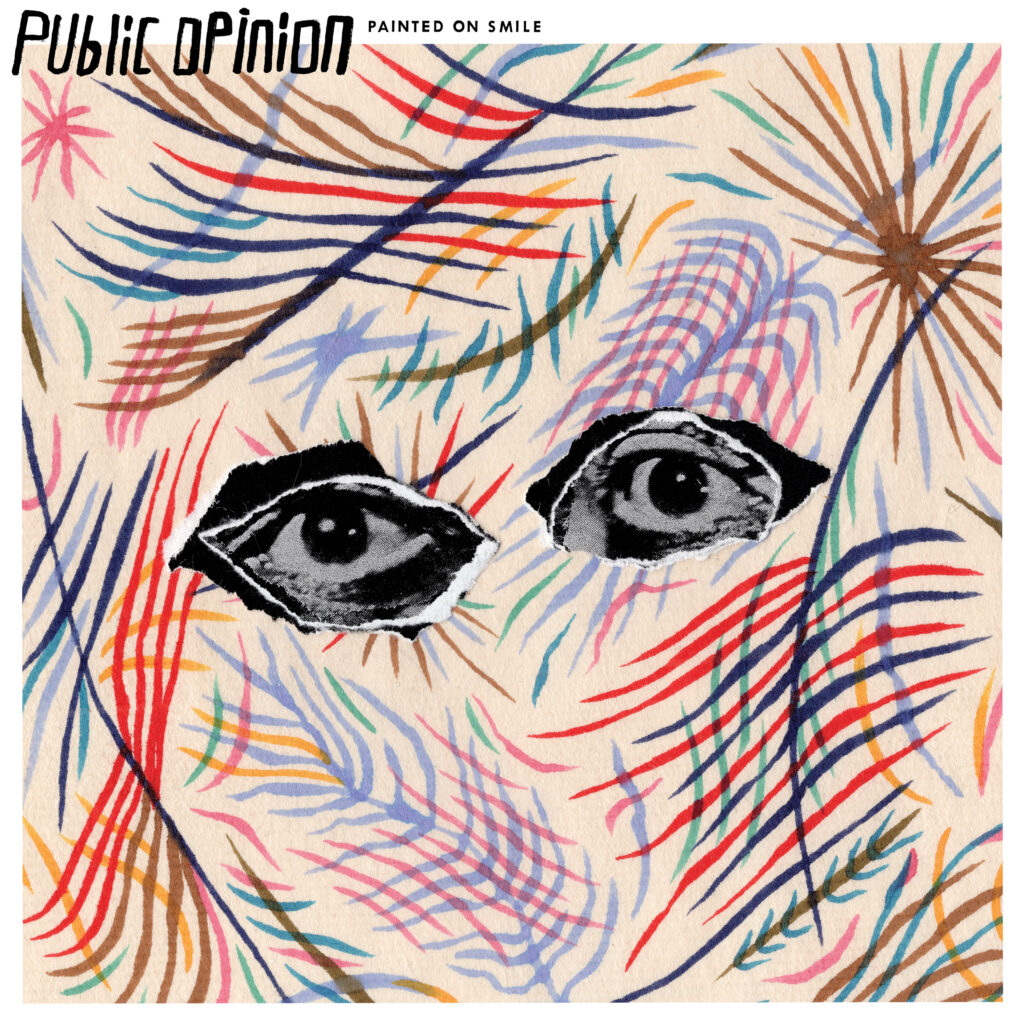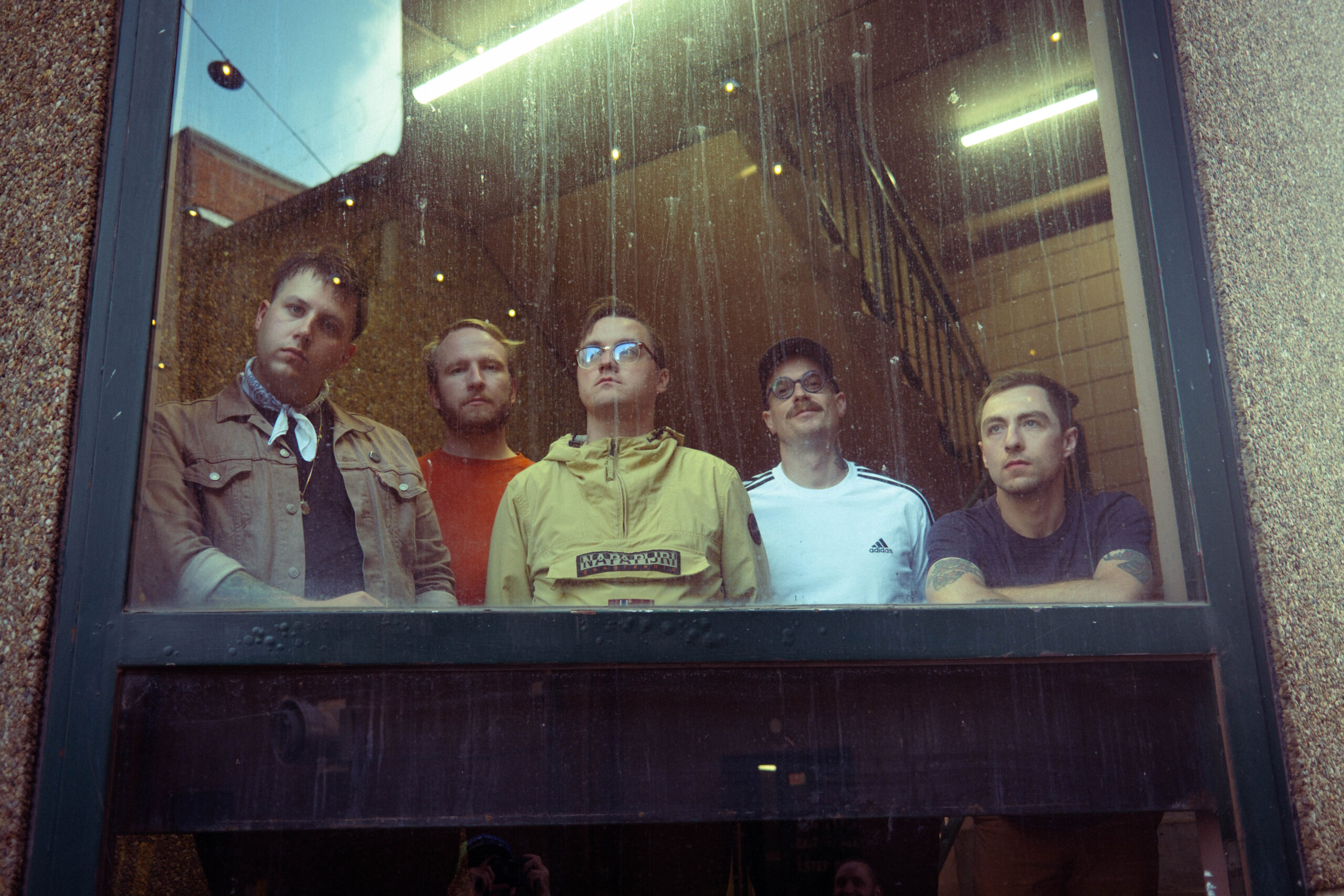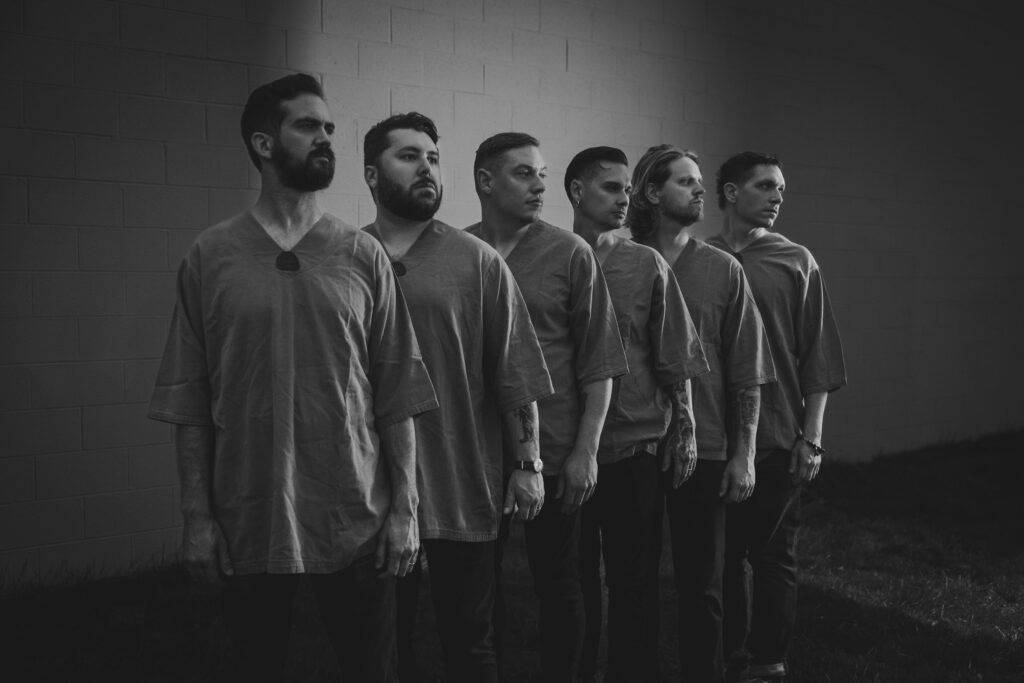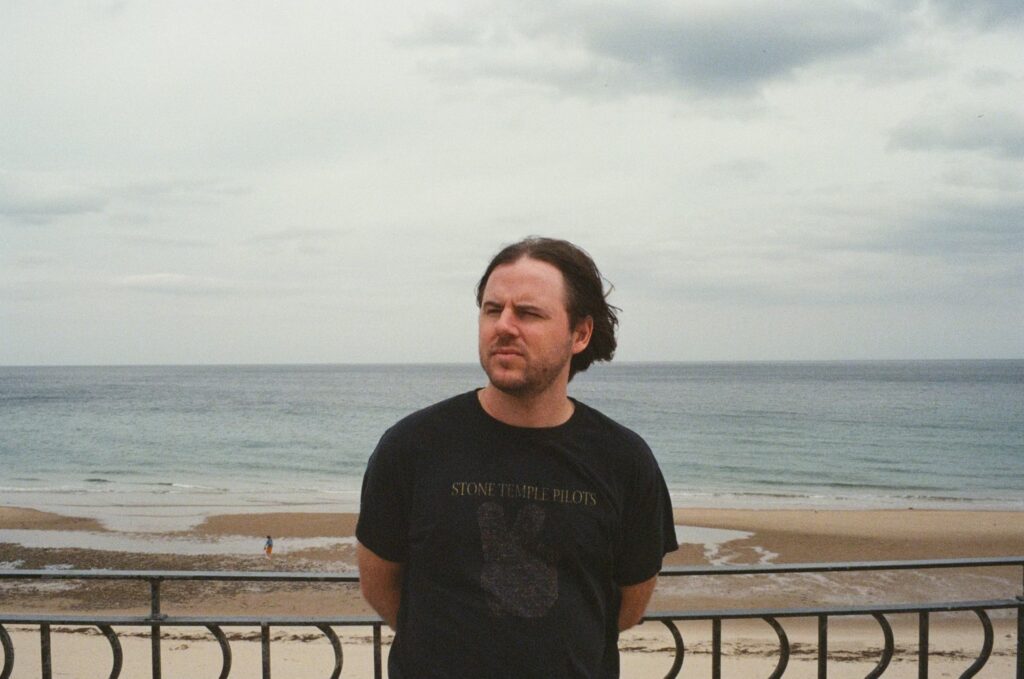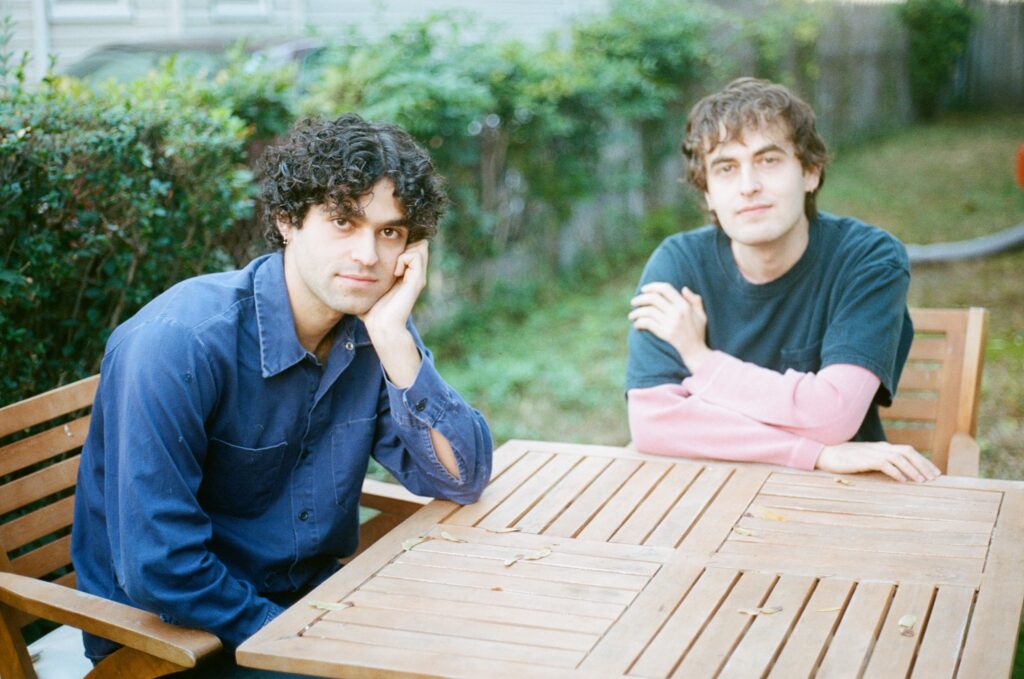Have you ever felt like you might be cursed? Public Opinion frontman Kevin Hart can’t help but wonder. “We jokingly called it the ‘Curse of Kevin,’ but I guess sometimes it’s hard to not feel like I have bad luck that I can’t really get away from,” he explains. “For instance, we were supposed to play a festival a few years ago but had to drop it because I got Covid…at my mom’s funeral. That’s kind of quintessential ‘Curse of Kevin’ stuff–feeling like whenever something bad is happening, it’s actually about to get even worse.” Hart’s semi-tongue-in-cheek theory is at the center of Public Opinion’s debut full-length, Painted On Smile. One part ultra-catchy punk, one part exorcism, it’s an album that reckons with self-loathing and self-doubt so thoroughly that by the end of it, maybe things don’t seem as cursed after all.
Public Opinion–Hart, drummer Devan Bentley, guitarists Kevin Johnson and Brent Liseth, and bassist Sebastian Stanley–emerged from the Denver, Colorado, hardcore scene in 2020 and have been releasing EPs and singles at a steady clip ever since, each one more catchy than the last. The band’s garage-y proto-punk always hinted at influences from the early 2000s rock revival moment, but Painted On Smile fully embraces the members’ mutual love of that era. “We really wanted to try and expand the sound of the band more,” says Hart. “That early 2000s stuff like The Strokes, The Hives, and Bloc Party was really important to us when we were kids, and I think this time we let a lot more of that infiltrate into what we were doing, and we ended up stumbling on more of our own sound.”
Co-produced by Militarie Gun/Regional Justice Center’s Ian Shelton, along with in-demand engineer Taylor Young (Drain, God’s Hate, MSPAINT), Painted On Smile somehow draws together the melodicism of early aughts rock, the intensity of hardcore, and the spiky swagger of primordial punk into a surprisingly cohesive blend. Opener “Drawn From Memory” introduces the band’s evolution with a crunchy riff and one of Public Opinion’s biggest and catchiest choruses to date. It’s quickly followed by the one-two punch of “Hothead” and “Some Don’t,” the former sounding like a cross between Marked Men and Black Flag, and the latter a downright pretty cut of ornately arranged guitar pop. It’s a dichotomy that appears on much of Painted On Smile: temper plus tunefulness.
Lyrically, the album hinges on Hart’s ability to capture existential frustration without stumbling into self-pity. “I’m really proud of the music, but the lyrics are honestly pretty hard to read along to,” Hart admits. “It’s me purging a lot of things that I feel negatively about. I think so much of my previous stuff was very ‘fuck you’ and this is much more of a ‘fuck me,’ apologetic kind of album.” Discomfort and guilt appear often throughout Painted On Smile, with tracks like “Some Don’t,” “Stethoscope,” and “Chicanery” taking a self-critical outlook informed by time, perspective, and newfound sobriety. But there’s still plenty of fire in Public Opinion, and songs like “Drawn From Memory” and “No Fruit At All” delve into anger–only this time there’s a desire to move on. Hart’s exasperation is palpable throughout the album; it’s the sound of a person banging their head against the wall, trying to do the right thing, and still coming up short. “I know one of these days I’m going to die and I won’t have been able to rectify every mistake I’ve ever made between now and then,” he says. “So that means I have to choose what I can actually make an impact on. That’s easier said than done.”
The penultimate track “Scene Missing” finds Public Opinion at their most unvarnished. The armor of distortion and drums is stripped away, replaced by acoustic guitar, mellotron strings, and Hart directly addressing his “curse.” It’s a strikingly honest and desperate song that threatens to tip Painted On Smile into despair if not for “Wear & Tear,” the album’s driving closer. “It’s about trying to be appreciative even if you think things keep going wrong,” Hart explains. It’s a rousing ending that pointedly looks at dissatisfaction, and wonders if it can be countered with gratitude and mindfulness–or as Hart asks over each furious chorus: “Is it not enough to grow?”
